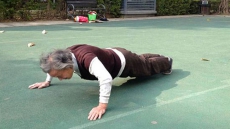Sexual assault is described as violation of the sexual integrity of the affected victim. As stated by the Supreme Court of Canada, the act of sexual assault is not limited to contact only but any act that violates the sexual integrity of the victim is equally considered sexual assault. According to (Shortt, Capaldi, & Tiberio, 2018) in the article “Sexual Assault” the sexual assaults happening in the universities’ campuses are most worrisome as they occur in the safe academic environment. And, also go unheard due to suppression and subjugation of the victim by the assailant. Further to the findings, study showed that unwanted sexual contact and sexual coercion was rampant among the post-secondary students. Also, both the males and females are equally exposed to sexual assault but the impact of sexual assault shows long term negative mental health implications amongst the post-secondary students.
Sexual assault is associated with poor mental health (Agardh, et al., 2012). It is one of the major public health challenges in the society. Being one of the dominant social problems amongst the young generation and post-secondary students, it often resulted in physical violence and threat. Studies show that most of the victims who undergo sexual assault in colleges have already been victim of sexual assault in the past and repeated exposure to sexual assault results in their emotional dysfunctionality. It further leads to self-harm as a coping strategy for the victims. Going through the transitional phase of moving away from home to universities to pursue their studies makes the post- secondary students more sensitive and prone to sexual assault when they find shelter to their emotional needs. Thus, resulting in emotional dysfunctionality.
It has come to notice that majority of the sexual assault cases are not reported by the victims due to the social taboo of shame, guilt, embarrassment and fear of isolation. Beaver (2017) in her article “Campus Sexual Assault” suggests that the majority of the campuses mishandle the sexual assault cases and thus, sending a message of being unheard. Fear of being unheard sends a negative message amongst the cohorts who are victims of sexual assault. Though the role of social media has played an influential role in persuading the victims to report the cases of sexual assault but, much is still needed to be done. The issues related to sexual assault are more predominant in the poorly handled campuses. (Shortt, et al. 2018)
Lifestyle patterns like smoking and alcohol consumption in addition to the predisposition to violence and threat in the past leads to higher number of sexual assaults. While some studies show that females are more exposed to sexual assault but, few other studies show that sexual assault is a result of interpersonal violence and irrespective of the gender. And, the victims of sexual assault who have undergone sexual coercion multiple times are at a greater risk of forcing others to sexual assault. Thus, re-exposure is a vicious cycle leading to revictimization. (Agardh, et al., 2012)
Sexual assault amongst the post-secondary students has taken a shape of serious problem. Interpersonal and physical violence that comes along bundled with sexual assault is life threatening with long term impact on mental health status of the victims. Though, the level of awareness has increased amongst the communities and the public in general but, a lot is still to be done to cultivate the healthy mindset. And, it begins at the micro level from families, friends, colleagues to the wider society.
In nutshell, it is time to openly discuss the epidemically presence of sexual assault in the most secured havens of academic environment. And, it begins with identifying the major barriers to non-reporting of sexual assault cases. Finding preventive methods to reduce re-exposure and thus, break the vicious cycle of revictimization to sexual assault. Last, but not the least peer support to fight back and support each other to fight the evils of sexual assault is another healthy and unified way to prevent further harm.




